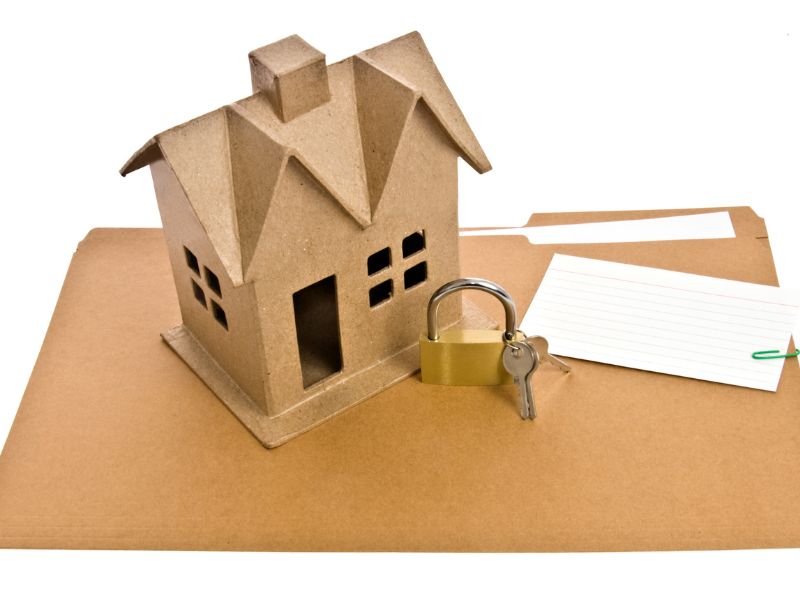 Rate locks play a crucial role in the mortgage application process, helping borrowers secure a favorable interest rate for their home loan. Here’s an explanation of the importance of rate locks and when and how to secure the best rate:
Rate locks play a crucial role in the mortgage application process, helping borrowers secure a favorable interest rate for their home loan. Here’s an explanation of the importance of rate locks and when and how to secure the best rate:
Interest Rate Protection: Mortgage rates are subject to market fluctuations and can change daily or even multiple times a day. Rate locks protect borrowers from potential rate increases during the loan processing period.
Budgeting and Planning: Knowing the exact interest rate allows borrowers to budget more effectively and plan their finances with certainty. It prevents unexpected increases in monthly payments, helping borrowers manage their expenses.
Peace of Mind: Homebuyers can experience peace of mind when they know their interest rate is secured. This allows them to focus on other aspects of the home-buying process without worrying about market volatility affecting their mortgage terms.
Financial Stability: Rate locks provide financial stability, especially for those on a tight budget. Unpredictable rate changes can significantly impact the affordability of a mortgage, and a rate lock mitigates this risk.
When to Secure a Rate Lock:
Timing Matters: Rate locks are typically available for a specific period, such as 30, 45, or 60 days. It’s crucial to lock in a rate at the right time, considering the expected duration of the loan approval process.
Market Conditions: Monitor market conditions to identify favorable times for rate locks. If interest rates are low or expected to rise, it might be advantageous to secure a rate lock sooner rather than later.
Loan Approval Status: It’s generally recommended to wait until your mortgage application is complete and the loan is in the underwriting process before locking the rate. This ensures that the lock period aligns with the expected timeline for loan approval.
How to Secure the Best Rate Lock:
Shop Around: Obtain quotes from multiple lenders to compare interest rates and terms. This provides a basis for negotiating and helps you identify the best possible rate.
Understand Lock Terms:
Be aware of the lock period and any associated fees or conditions. Longer lock periods may come with higher fees, so it’s essential to strike a balance that suits your needs.
Consider Float-Down Options: Some lenders offer float-down options, allowing borrowers to secure a lower rate if market conditions improve before closing. Understand the terms and conditions of this option.
Consult with a Mortgage Professional: Work closely with your mortgage broker or loan officer. They can provide guidance on the optimal time to lock in your rate based on market trends and your specific financial situation.
In the end, rate locks provide stability and predictability in a volatile market, enabling homebuyers to secure favorable mortgage terms. Timing, market awareness, and careful consideration of lock terms are essential to ensure you get the best rate for your mortgage.
 Using online mortgage lenders can offer several advantages and disadvantages compared to traditional brick-and-mortar lenders. It’s important to weigh these factors based on your individual preferences, needs, and financial situation. Here’s a breakdown of the pros and cons:
Using online mortgage lenders can offer several advantages and disadvantages compared to traditional brick-and-mortar lenders. It’s important to weigh these factors based on your individual preferences, needs, and financial situation. Here’s a breakdown of the pros and cons: Owning a home is a significant milestone that comes with a multitude of financial considerations. Beyond the pride of homeownership, there are substantial tax benefits and deductions available to those who embark on this journey. We will explore key facts about mortgages and taxes, focusing on the deductions, credits, and benefits that can make homeownership a financially savvy decision.
Owning a home is a significant milestone that comes with a multitude of financial considerations. Beyond the pride of homeownership, there are substantial tax benefits and deductions available to those who embark on this journey. We will explore key facts about mortgages and taxes, focusing on the deductions, credits, and benefits that can make homeownership a financially savvy decision.